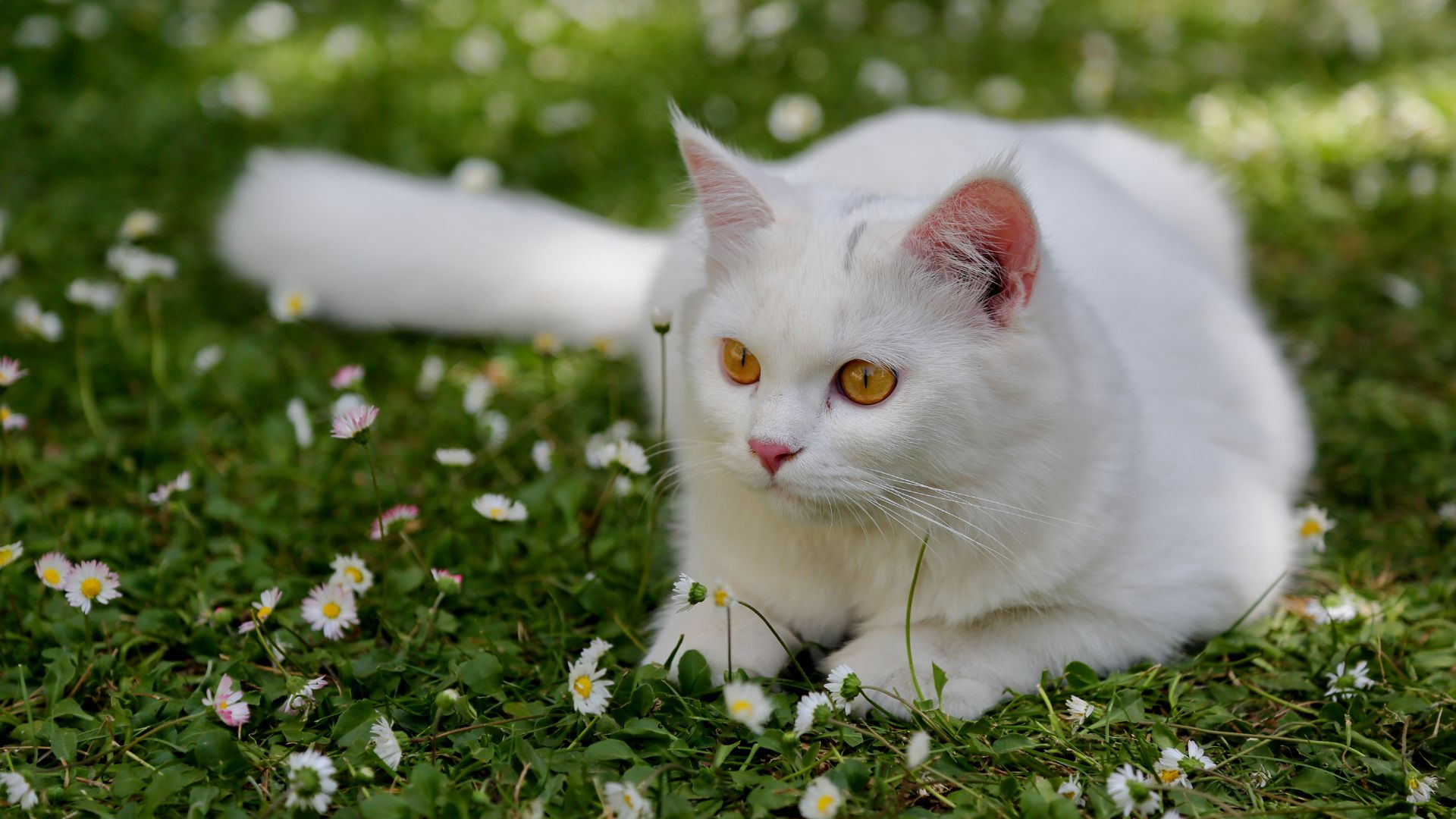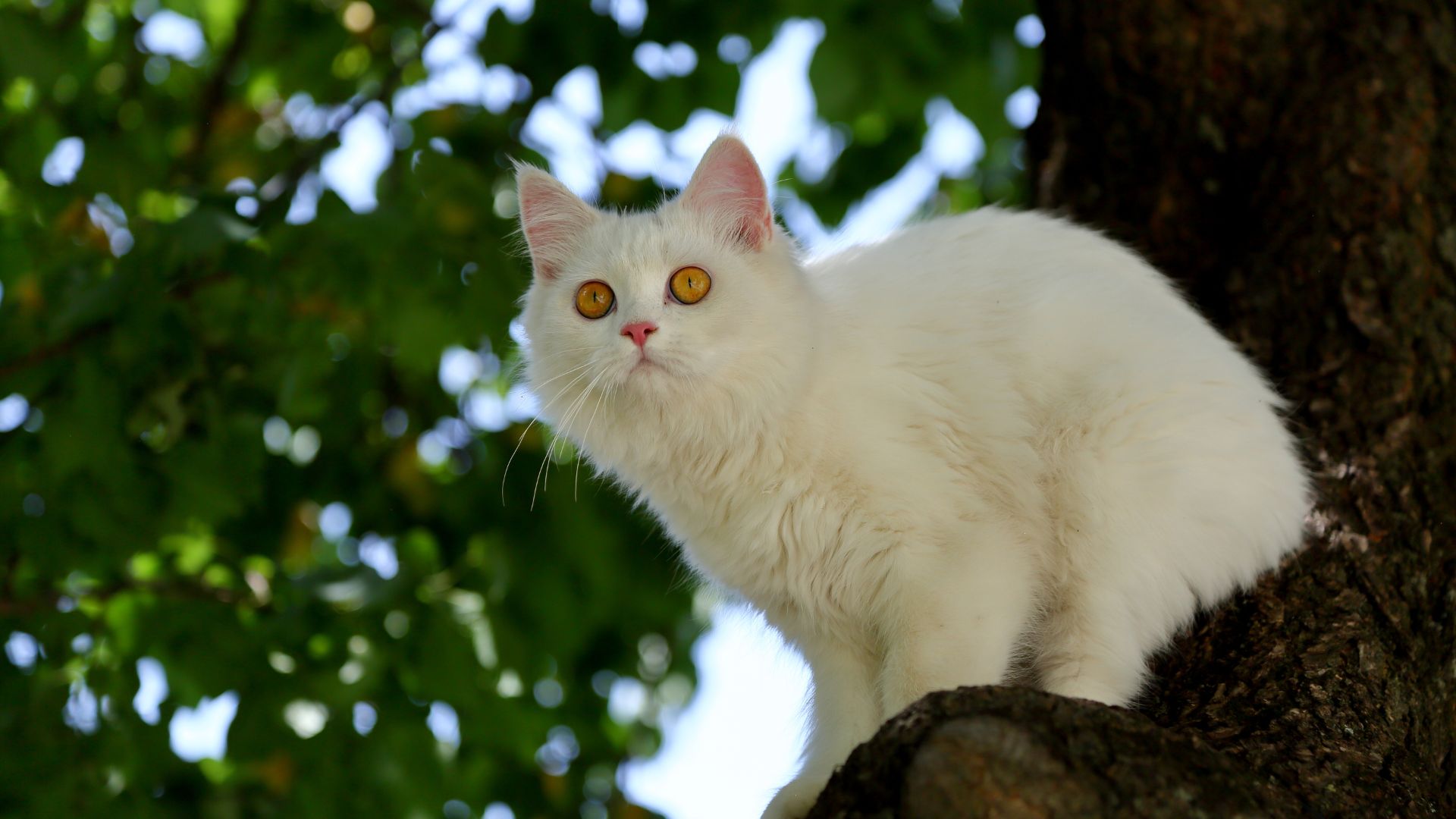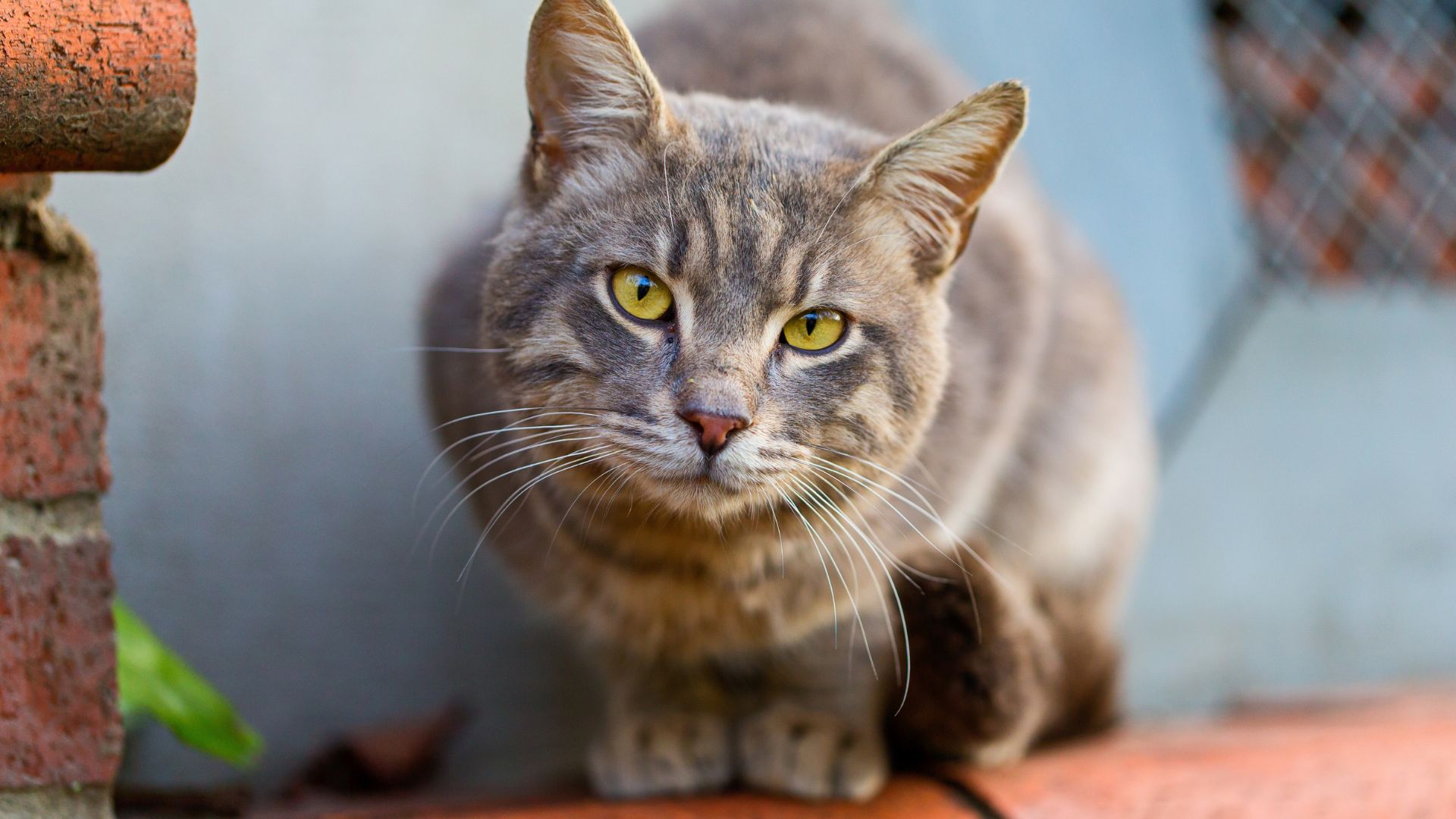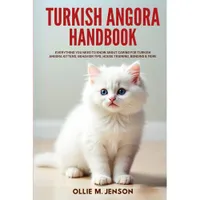Hailed as one of the rarest cat breeds, the Turkish Angora is a graceful kitty that bonds deeply with their humans
But that's if you can find one! Discover more about this majestic breed and why it's so unique


Other names: Turkish domestic cat
Life expectancy: 15–20 years
Size: 5–10 lbs, 8–10" in height
Coat: most notably white, but this breed has been spotted with black, blue, red and cream colorings
Eye colour: blue, green, amber, or different colored eyes
Temperament: curious, devoted and intelligent
Origin/native country: Turkey
Gentle and graceful, as their name suggests, Turkish Angoras originated in Türkiye during the 16th century. But by the 20th century, this cat almost became extinct. To stop this from happening, a breeding program was set up in Ankara Zoo in 1962 and the same program is still running in 2025 as it is still considered one of the rarest cat breeds.
Today, Turkish Angoras are most often depicted with their beautiful white silky coat, their striking almond-shaped eyes and a long and graceful body. Described as being regal in both their looks and personality, this family-oriented cat tends to form a close bond with one person and is known and loved for its intelligence and independence.
To find out more about this breed, and whether your four walls are a Turkish Angora's fur-ever home, we spoke to expert vet Dr Rebecca MacMillan, who shared her knowledge of this breed with us.
Are Turkish Angora cats hypoallergenic?
Turkish Angora cats aren't classed as a hypoallergenic cat breed.
While their luscious single-coated locks won't shed too much, they still carry the Fel d 1 protein, which is the primary allergen in cats, which is known to trigger allergies.
Therefore, if your allergy is on the mild end, a Turkish Angora might not have you reaching for the tissues any time soon as they won't end up leaving fur all over your home.
But as is the case with all feline friends, they still have the protein that is carried in cat saliva and this will be spread through their coat after they groom themselves.
Get the best advice, tips and top tech for your beloved Pets
Are Turkish Angora cats vocal?
Turkish Angora cats are well known for being one of the more vocal cat breeds.
“They have a wide range of meows that they use to communicate with their owner,” explains Dr Rebecca MacMillan. “They usually show off their vocal talents when they are demanding attention! However, individuals vary, so some of these cats may be more talkative than others.”
Turkish Angora health problems
According to Dr MacMillan, white Turkish Angoras with blue eyes are at an increased risk of deafness.
"The same genes that control melanin production, also affect the chemical balance in the tiny hairs within the ear," the vet explains. Unfortunately, there is no treatment for hereditary deafness, but many cats with hearing issues can still have a good quality of life if kept safely indoors, Dr MacMillan explains.
This breed, like many others, can be affected by hypertrophic cardiomyopathy (HCM).
"This hereditary heart issue can eventually lead to heart failure," Dr MacMillan explains. "A reputable breeder should screen their Turkish Angora cats for this condition prior to mating them. This will help to increase the chances of you owning a healthy cat."
Turkish Angoras can also suffer from all the common health complaints that may affect any other feline. So, to keep them healthy it is essential to carry out preventative healthcare.
"Making sure your cat is up to date with their vaccinations and anti-parasite treatment is important," Dr MacMillan says. "But you should also ensure they are on a good-quality, complete diet that is suitable for their life stage.
“Obesity can shorten the lifespan of your pet. Watching your Turkish Angora’s waistline will help increase their chances of a long and happy life and reduce the risk of issues like diabetes mellitus.”

What are a Turkish Angora’s grooming needs?
Brushing this cat breed once a week should do the trick. A Turkish Angora has a single coat with no undercoat which makes grooming them easier than other fur friends, with double or triple coats.
If you have a white coated or light colored Turkish Angora, you may need to bathe them occasionally too, to keep their fur looking its best. The good news is that Turkish Angoras love playing in water, so this should take care of washing their coat.
What are a Turkish Angora exercise needs?
This breed is very agile and athletic. When they're not exuding their kitten-like playfulness they are most probably playing in water. And when they're not picking up the best cat toys, they are exploring the world and climbing trees outside.
Therefore, to help expel some energy, a Turkish Angora will need at least 30 minutes of exercise a day, which can be broken up into smaller stints. This could include letting them explore the great outdoors with their strong hunting instincts, letting them run and jump around your home or engaging in some one-on-one toy time.
How much does Turkish Angora cost?
Turkish Angoras are a relatively expensive cat breed and the high price point is reflective of their rarity.
Generally speaking, kittens can cost between $650–2,000, depending on the location and breeder you go to.
This is in the same ballpark as a Korat, Abyssinian and Himalayan cat.
Should I get a Turkish Angora?
A Turkish Angora is a family-oriented cat and will love forming a close bond with one special human. Therefore, if you or your family are keen to create a fur friend for life, then this kitty, which can live for up to 20 years, will feel right at home.
Turkish Angoras retain their kitten-like energy all throughout adulthood. So not only will they bring lots of energy to your home, they will be up for playing, exploring and climbing. And when they're not doing that, they will be chatting away!
Grooming-wise, a Turkish Angora is pretty low-maintenance. And while there are a few health conditions to be aware of, like potential deafness and HCM, the latter can be prevented if you purchase from a reputable breeder who would health-screen their Turkish Angora cats for this condition prior to mating them.
All in all, a Turkish Angora is a friendly, lovable and fun cat to share your home with – but that's if you can find of these rare beauties in the first place!
Turkish Angora Handbook | Amazon
Whether you’re a first-time kitten parent or an experienced feline lover, this comprehensive handbook unlocks the secrets to a happy, healthy life with your Turkish Angora.
Read next: White cat breeds

Having graduated in 2009 from the Royal Veterinary College in London as a veterinary surgeon, Rebecca is highly experienced in first opinion small animal practice, having done a mixture of day-to-day routine work, on-call emergency duties and managerial roles over the years. Rebecca recently achieved a BSAVA postgraduate certificate in small animal medicine (with commendation).
Rebecca writes on various feline and canine topics, including behavior, nutrition, and health. Outside of work and writing she enjoys walking her own dog, spending time with her young family and baking!
Edited by Georgia Guerin.

Becks Shepherd is a lifestyle journalist who has worked with titles such as Tom's Guide, Marie Claire, and Fit and Well.
In addition to this, she’s a pet writer with nearly a decade of editorial experience across digital and print media. A devoted “dog aunt” and lifelong animal lover, Becks brings a personal touch to her pet content—whether she’s testing the latest dog gear or digging into behavioral tips.
She works closely with veterinary experts to ensure factual accuracy and is currently exploring animal care certifications to deepen her knowledge. Her work has appeared in leading outlets across health, wellness, and pet care spaces.

